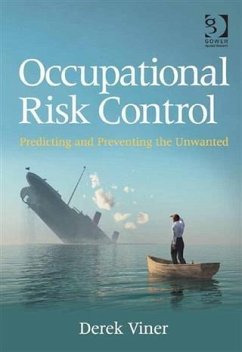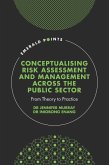In Occupational Risk Control, Derek Viner brings together the theoretical aspects of his subject into a coherent whole and then connects them with the needs both of practitioners and educators.The theory embraced by the author spans ideas formed between the industrial revolution and the present day, but he focuses on relatively more recent theoretical developments chiefly associated with people-orientated approaches in the discipline of psychology applied to management practice and in the application of analytical ideas to engineering design.The author looks specifically at developments in defence and petro-chemical systems and also considers the whole theory of risk that originated in the 1970s with the advent of nuclear power stations, but which he argues has advanced little since that time. He also introduces the geological and botanical sciences, on the grounds that they contribute much to our understanding of how to set about classifying phenomena. To this mix, is added the contribution of law to our understanding of moral obligations and that of statistics to our understanding of the management of uncertainty.Viner argues that amongst the observable consequences of the absence of a holistic approach, is the tendency for regulators to form (misinformed) theory on which to base legislation and the prevalence of commercial systems leading to disparate efforts by different industries. The net effect of all this, he suggests, is seen in the disasters of the magnitude of the Gulf of Mexico explosion and oil spill.
Dieser Download kann aus rechtlichen Gründen nur mit Rechnungsadresse in A, B, BG, CY, CZ, D, DK, EW, E, FIN, F, GR, HR, H, IRL, I, LT, L, LR, M, NL, PL, P, R, S, SLO, SK ausgeliefert werden.









